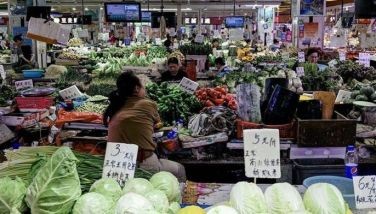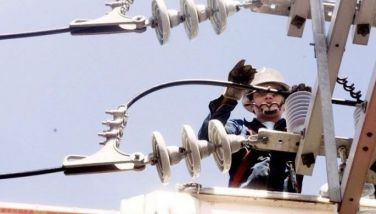Much ado about the wrong things

When the World Bank reported the Philippines dropped by six notches in global ranking to 103rd place compared to 97th last year in terms of ease of doing business, there was much ado about the method used, or to be more specific, the changes in the way the report was prepared.
Our government officials, after all, barely just had enough time to relish the “climb” in competitiveness rankings reported last year, which in itself was a welcome complement to another survey that showed improved business confidence in the country’s economy.
Of course, we should celebrate small victories no matter how minute they are in the overall scheme of things. But we should never lose sight of reality, no matter how harsh. And the painful truth is the Philippines continues to be at the lower quartile of the chart.
Simply put, the Philippines is not doing well in terms of ease of doing business if compared to many countries that participated in the survey, not even last year when we moved to 97th place in the list of 189 countries.
After all, there really has been nothing landmark done over the past years by our government regulators, in both the local and national levels, that would boost our standing in the competitiveness rank chart. So we really should not expect earth-shaking good news.
Finding solutions
Instead, the government – including the National Competitiveness Council of the Philippines and all its stakeholders – should strive to work on all the 10 ingredients that have been adopted as criteria to gauge how we are performing in the aspect of facilitating business growth.
Let’s put some great minds on the job. For starters, let’s convert the 10 criteria into 10 teams, each ably headed by good team leaders of CEO caliber that can understand the concerns of business and have the vision to reform and transform problems.
For example, in the indicator about starting a business, let’s have a Joey Concepcion who’s passionate about encouraging entrepreneurship in the country. The World Bank’s survey has indicated that starting a business in the Philippines is the biggest challenge, being ranked 165th of 189 economies. Let’s have some doable action plan to improve this score.
Priorities
The other major indicators that would need top-notch help would be about protecting minority investors (155th), enforcing contracts (140th), paying taxes (126th), registering property (112th), getting credit (109th), dealing with construction permits (99th), and trading across borders (95th).
The rankings received from the above-mentioned indicators continue to pull down the overall score, and including the indicator about starting a business, comprise seven of the 10 indicators.
Some indicators are tougher than the others, but there is hope in pulling at least five indicators somewhere near the 50th rank and significantly pulling up the Philippines’ overall ranking.
I would bet on indicators such as starting a business, paying taxes, registering property, getting credit and dealing with construction permits as among those that have a better chance of being reformed.
Protecting minority investors and enforcing contracts would be among the most difficult to resolve, with both dealing with the notoriety of the Philippine justice system. But who knows? There may be a brilliant mind belonging to a charismatic person who can find solutions to this problem.
The other indicators that could help pull up our ranking would be that of bringing trade across borders (95th) and resolving insolvency (53rd). Both, especially the former, still have much room for improvement.
Getting electricity (19th) was the only indicator that exhibited glowing scores, and was the only one that showed an improvement from its year-ago ranking of 21st. An Oscar Reyes here would be most welcome, although he could be of more help in the other more critical areas.
Government’s report card
Despite the criticized changes made in the World Bank’s methodology over the last five years, it is still one of the most extensive and expansive datasets that have been maintained through the years. This has helped in providing a good scorecard on how our governments fared.
For example, in terms of effort (distance to frontier indicator), the Philippines scored only 60, which means that it is really could expend more effort in finding ways to improve the business environment.
The entrepreneurship indicator is also strong indicator of how much we still need to do. For example, the Philippines has an exceptionally low new business densities data. This definitely is a reflection of how unfocused our government is on encouraging new businesses.
The dataset on good practices also provides a solid answer to why a country like the Philippines is not doing well in starting businesses, for example. On three indicators (Can procedures be completed online? Is there a one-stop shop? Is there no paid-in minimum capital requirement?), the Philippines’ answers are a no, yes, no, respectively. Singapore answers all in the affirmative.
In good practices for securing credit, there are 20 questions. Singapore doesn’t comply with only five criteria; the Philippines has to work on 12. Now, if we could only bring these negatives down to eight, then that would make for a better scorecard.
There are more guides on good practices from this list, definitely a welcome help to any team assigned to a corresponding task.
What needs to be done
For an economy like the Philippines on the brink of a take off, the level of business activity in the local scene needs to be heightened to solidify past years’ gains and accomplish successive breakthroughs to becoming a healthier nation.
We need more businesses to generate more jobs and income, and consequently improve domestic productivity. Let us take reports and studies like what the World Bank is doing as a measurement and gauge of how we can further propel the engines of growth.
The World Bank report says we have so much more to do. Quibbling about changes in methodology and how the data has been analyzed will not move us to a better position.
At the moment, ladies and gentlemen, the next best thing to do is to roll up our sleeves and start working – or work harder.
Facebook and Twitter
We are actively using two social networking websites to reach out more often and even interact with and engage our readers, friends and colleagues in the various areas of interest that I tackle in my column. Please like us at www.facebook.com and follow us at www.twitter.com/ReyGamboa.
Should you wish to share any insights, write me at Link Edge, 25th Floor, 139 Corporate Center, Valero Street, Salcedo Village, 1227 Makati City. Or e-mail me at [email protected]. For a compilation of previous articles, visit www.BizlinksPhilippines.net.
- Latest
- Trending






























